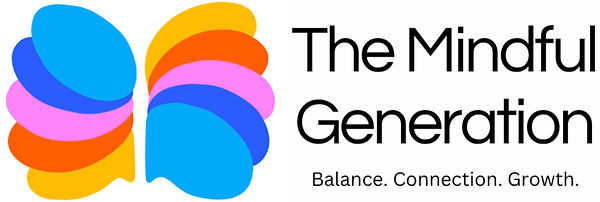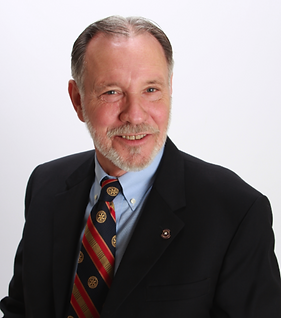

Reimagining Connection, Technology, and Purpose
Today’s relationships, both for kids and adults, are often missing the deeper conversations that build true understanding. Our fast-paced, screen-driven culture is shortening attention spans and shifting our focus from being happy, healthy, good people to simply being productive or distracted. Many children and adults don’t get to discover who they truly are, because success is too often measured by likes, followers, or income, not by character or connection.While technology has its benefits, we have to use it wisely. Kids are losing essential life skills, like face-to-face communication, meaningful relationships, and conflict resolution. All because so much time is spent on screens instead of through play and real interaction.
At The Mindful Generation, we believe that understanding the "why" behind change is key. Why put the phone away? Why delay social media? When kids and parents understand the science behind brain development, especially the impact on the frontal lobe, they're more likely to make lasting, mindful choices. At TMG, we believe that prevention is the best medicine. By teaching kids the pillars of mental wellness, we can reduce the need for treatment and medication and empower a generation to live healthier, more joyful, and meaningful lives.
Our Vision
Creating a Brighter Future Together
To nurture a Mindful Generation empowered with awareness, resilience, and connection—through advocacy, education, and the cultivation of social-emotional strength, balanced technology use, and holistic wellness.
Debbie Merrick
Co Founder
Debbie Merrick has over 25 years of leadership experience in corporate strategy, technology, and community advocacy, including senior roles at J.P. Morgan Chase and Arthur Andersen. She now applies that expertise to mental health, founding the NJ Cross-Town Mental Health Coalition and leading regional initiatives like Paint the Town Green to expand wellness education and reduce stigma. She lives in New Jersey with her husband and three children.


Danielle Gargiulo
Co Founder
Danielle Gargiulo is the proud mom of three, and when she's not busy advocating for youth mental wellness, you can often find her on the sidelines of a soccer or softball field. Danielle spent nearly 20 years at Robert Half as an award-winning sales leader and mentor before shifting to the nonprofit world. Inspired by personal experiences and research like Jonathan Haidt’s The Anxious Generation, she founded The Mindful Generation to help families navigate digital challenges and support children’s mental well-being. A magna cum laude graduate of Franklin & Marshall, Danielle also volunteers at Overlook Hospital, where she launched a Mental Health Awareness group. She lives in New Jersey with her family and their dog, Charlie.
Ray Freaney
Founding Member
Ray Freaney enjoyed a 45-year career in the chemical and pharmaceutical industry, most of it as a Plant Manager. A Rotarian for more than 30 years, he launched the End Hunger 3.6 program in 2016, which has provided over 2 million meals worldwide, and served as Rotary District 7475 Governor in 2019–2020, supporting 84 clubs and 2,000 members. He later helped found the Rotary Club of Mental Health Advocates, where he continues to connect people and organizations while working tirelessly to reduce stigma.

Stress Management
Identifying healthy vs. unhealthy stress is an important skill for today's youth. An example of healthy stress is preparing for a test vs. unhealthy stress, which is chronic worry or overwhelm. Many kids and teens today live in a state of chronic stress - often unnoticed. Our goal is to help kids build a toolbox of calming strategies: meditation, walking, music, talking to a friend, etc. We also aim to help youth let go of unhelpful thoughts and pressure in today's fast-paced and demanding landscape.
Social Connection
Today's technology makes true social connections harder than ever. Tech companies are algorithmically and intentionally stealing youths' time and attention away from in-person, meaningful experiences. It is more important than ever to teach kids what healthy social relationships look like and how to maintain them. We aim to support building skills in communication, boundaries, and empathy.
Digital Mindfulness
Smartphones, social media, and many video games are designed to deliver unnatural dopamine doses to users intermittently, which is the most addictive version of engagement with any platform. It keeps us and our kids coming back, time and time again, for hours on end, mindlessly and seemingly against our better judgment. The average teen spends 7 hours a day on screens, which adds up to almost 20 years of their life! (averaging an 80-year lifespan). Technology can be amazing, entertaining, educational, and enriching, but it can also be extremely dangerous and detrimental to our well-being. Our mission at The Mindful Generation is to help youth learn about the ways that their time and attention are being spent, and to be intentional and mindful users of technology. We want technology to enhance and enrich their lives, not create anxiety, depression, and isolation.
Physical Wellness
Nutrition
-
Nutrition is essential to mental wellness because the gut microbiome directly affects the brain. A diverse diet supports a diverse and healthy microbiome. More and more research is emerging about the gut as the “second brain.”
-
Children should understand how their food affects their mind and overall health.
-
Gardens at home, school, and in communities can help teach seasonal eating, food variety, and the importance of healthy soil.
Exercise
-
Research is clear that sitting contributes to a disease state —the average child sits for 7 hours a day. This leads to increased inflammation markers and various health risks.
-
Encouraging short bursts of movement or “exercise snacks” like jumping jacks, dance breaks, and squats in school is an easy way to boost morale and movement.
-
Promoting yoga in schools can support both physical and mental well-being.
-
According to the CDC, AAP, & WHO, kids ages 6 to 17 should get 60 minutes or more of moderate-to-vigorous physical activity every day.
Sleep
-
Sleep is fundamental to learning, memory retention, immune response, hormonal regulation, and brain detoxification.
-
Children need 9–10 hours of sleep, with the last two hours being the most restorative.
-
We are partnering with screenfreesleep.org to help educate parents as to the benefits of keeping screens out of the bedrooms. The science shows a correlation to screen-free sleep and stronger physical health, mental well-being, and stronger academic performance.
Creativity & Free Play
True cognitive health isn't just IQ—it includes curiosity, creativity, and passion. Kids today are increasingly consuming pre-packaged content (YouTube, social media, video games), which can limit imagination, original thought, and opportunities to learn social skills. At The Mindful Generation, a top priority is to encourage free and active play at all ages. Research shows that play is essential not only for fostering an inquisitive and creative mind but also for developing problem-solving abilities, relationship-building skills, and emotional intelligence. Free play helps children and teens learn to navigate challenges, collaborate with peers, and build meaningful connections—all of which contribute to happier, healthier, and more connected lives. We are on a mission to create communal spaces where kids can play, explore, discover new passions, and develop both creativity and social confidence.
